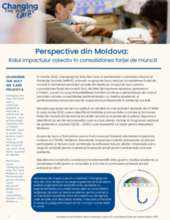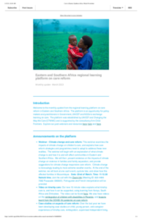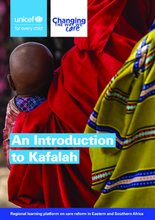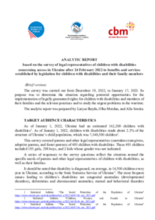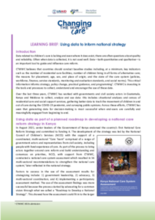Displaying 721 - 730 of 10391
Alexander is one of many Ukrainian teenagers who fled to Moldova unaccompanied. Thanks to the partnership between border police, child protection specialists working with UNICEF and local authorities, he was identified and integrated into a foster family from Causeni. Since the onset of the conflict, one of UNICEF's biggest priorities has been to protect children from abuse or trafficking.
During the 54th session of the UN Statistical Commission, the Global MICS team launched MICS 7 with several new initiatives such as MICS Plus, geocoding, and integration with administrative data sources.
În martie 2022, Changing the Way We Care, în parteneriat cu Ministerul Muncii și Protecției Sociale (MMPS), a lansat un grup de lucru axat pe consolidarea forței demuncă în domeniul serviciilor sociale din Moldova.
In March 2022, Changing the Way We Care in partnership with the Ministry of Labor and Social Protection (MoLSP) launched a Working Group focused on strengthening the social service workforce in Moldova.
This is the monthly update of the Eastern and Southern Africa Regional Learning Platform published in March 2023.
This paper aims to contribute to a better understanding of the nature and characteristics of Kafalah in Eastern and Southern Africa and identify effective strategies to support Kafalah.
This survey was carried out from December 19, 2022, to January 17, 2023. Its purpose was to determine the situation regarding potential opportunities for the implementation of legally guaranteed rights for children with disabilities and members of their families and the relevant practices and to study the urgent problems in the wartime.
This learning brief was developed as part of the CTWWC 2021 annual report and shares learning from Kenya and Moldova. It is intended to share what the initiative has learned about gathering data and helping governments and their partners to use it for strategizing care reform.
El nuevo conjunto de herramientas de evaluación participativa de Family for Every Child pone en el centro el conocimiento y la experiencia de las organizaciones de la sociedad civil (OSC) locales. Ofrece una alternativa a las dinámicas de evaluación tradicionales, aprovechando la fuerza de las soluciones locales.
Family for Every Child's new Participatory Evaluation Toolkit places the knowledge and experience of local Civil Society Organisations (CSOs) at its centre. It offers an alternative to traditional evaluation dynamics, by drawing on the strength of local solutions.

